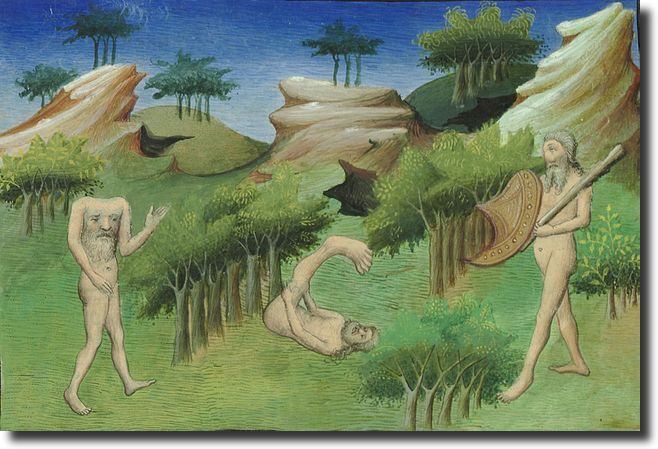Epistemology & the Pursuit of Information Literacy
By Peter Patten, Reference Librarian

We’ve all been inundated with stories about “fake news” over the past few years. The library even created a Research Guide about how to identify it. Librarians spend a lot of time promoting information literacy to help people find high-quality sources and avoid disinformation – it is the quintessential nature of our job. But information literacy is not a new concept. It’s based on a branch of philosophy called epistemology.
As defined by the Oxford English Dictionary, epistemology is the “theory of knowledge and understanding, especially with regard to its methods, validity, and scope, and the distinction between justified belief and opinion.” It is one of the major branches of western philosophy, discussing such questions as: how do we know what we know? What is the difference between fact and opinion? What happens when people cannot even agree on what the “facts” are? Although it has been debated for hundreds of years, recent events have demonstrated how relevant epistemology is today.
The truth is notoriously hard to pin down. Before the modern era, it was common for travel writers like Marco Polo and John Mandeville to mix facts with fiction. In his book about Magellan, Over the Edge of the World: Magellan’s Terrifying Circumnavigation of the Globe, Lawrence Bergreen describes how Mandeville wrote about visiting the mythical kingdom of Prester John, seeing yellow and green people, and finding the fountain of youth. Mandeville claimed firsthand knowledge of all of these but actually derived the material from medieval encyclopedias. Bergreen also discusses the ancient Greek idea of Autopsis. He writes, “Autopsis stressed the value of firsthand reporting — this was a revolutionary concept in the age of discovery, to go see for one’s self, to study the world as it was, not as myths and sacred texts suggested that it should be.”

Even eyewitness accounts from other people cannot be relied upon. The 1950 film Rashomon, directed by Akira Kurosawa, makes this point effectively by presenting the viewer with multiple versions of a murder from the perspectives of different characters and leaving it to the viewer to determine which version, if any, is true. But what do old philosophical debates, films, and fanciful travel accounts have to do with the present? Look no further than the Capitol riot of January 6th, 2021.
America is in an epistemological crisis. There have been moral and political crises before, as when President Nixon was forced to resign after Watergate. But he was forced to resign precisely because there was broad agreement on the facts and both parties could see that Nixon had acted illegally. The events of recent years culminating in the events of January 6th are more serious because they are due not to a moral failure, but an epistemological failure. Millions of people genuinely believed (and still believe) that the 2020 Presidential election was “stolen” in spite of 60 judges in 60 trials finding no evidence of election fraud. People no longer agree on basic facts or trust our judicial system. As Barbara Fister writes in her Atlantic article entitled The Librarian War Against QAnon: “How can so many people believe things that are obviously untrue?”

An argument could be made that it was the revolution in epistemology during the Enlightenment of the 17th and 18th centuries in Europe and the development of the scientific and industrial revolutions that transformed human life and led to extraordinary progress in standards of living for many of the world’s people. After the Enlightenment, it was recognized that knowledge had to be based on objective evidence rather than on authority, on reason rather than imagination or wishful thinking. The scientific method became the only acceptable path to knowledge and it was self-correcting; if new evidence proved a theory wrong it had to be revised or discarded. However, as has become increasingly clear over the past few years, not everyone is on board with enlightenment epistemology even after it has led to 300 years of human progress. Social media has enabled anyone to claim their own “expertise” in a kind of parody of scholarly and scientific research. Disinformation and conspiracy theories thrive where actual evidence is deemed unnecessary, irrelevant, and too time-consuming to bother with.
The epistemological rift that has been simmering beneath the surface of society for years and which has been exacerbated by social media will not be easy to overcome. It will require an educational effort at all levels focused on stressing the importance of evidence-based knowledge and critical reasoning. Just because discerning the truth can be difficult and requires mental discipline and energy does not mean it is impossible. A major goal of education, perhaps the most important goal, is to instill in people the habit of objectively examining competing versions of truth and rejecting claims for which there is no evidence. Only then will we be able to agree on the facts and restore a common epistemology.
If you are now fascinated by epistemology and information literacy (and who wouldn’t be?) check out our newly updated Information Literacy Research Guide. You can also search our catalog, OneSearch, and our philosophy databases.
Did you know that librarians are here to help you integrate information literacy into your classes? Fill out the Library Instruction Request Form or reach out to your library liaison to get started.


